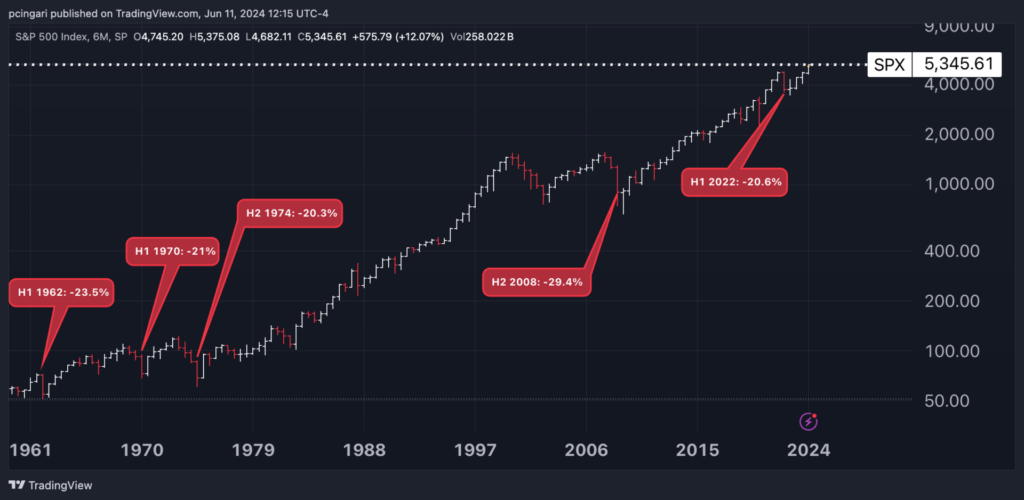Zinger Key Points
- Marko Kolanovic advises investors to maintain an underweight position in equities amid rising macro risks.
- JPMorgan forecasts the S&P 500 ending 2024 at 4,200 points, a 22% drop from current levels.
- Feel unsure about the market’s next move? Copy trade alerts from Matt Maley—a Wall Street veteran who consistently finds profits in volatile markets. Claim your 7-day free trial now.
JPMorgan Chase & Co. continues to hold one of the most pessimistic views on Wall Street regarding the U.S. stock market, expecting a decline in the coming months despite the S&P 500 reaching new all-time highs in June.
In a note shared on Monday, JPMorgan’s chief market strategist and co-head of global research, Marko Kolanovic, reiterated his bearish view on equities, advising investors to maintain an underweight position in stocks.
Kolanovic's Bearish Outlook
“We still see a high 50% probability of the macro picture deviating from the soft landing thesis either because there is a near-term break in the U.S. economy or because persistent inflation induces the Fed and other major central banks to keep rates high for a prolonged time period or to raise them further, thus raising fears of an eventual hard landing in 2025/2026.”
Kolanovic added, “Equities continue to price in little downside risk.”
JPMorgan anticipated the Federal Reserve will likely remain on hold this week and adjust its projections in different directions.
“The committee will likely be finely divided between one and two cuts this year, and we believe a dovish leaning chair likely tips the balance toward two. Our U.S. team shifted its view this week to anticipate only one ease this year coming in November.”
Kolanovic highlighted that equities seem to be ignoring numerous risks, including political and geopolitical factors, narrow market concentration, the surge in meme stock and crypto trading that may signal froth, still elevated inflation/rates and various macro signals indicating elevated risks of an economic slowdown or recession.
“Despite these abundant risks, equities continue to trade around record highs, and investor sentiment and positioning are elevated,” the analyst said.
Unchanged S&P 500 Forecasts
Notably, JPMorgan’s S&P 500 forecasts for 2024 have not changed since the world’s largest investment bank issued its market outlook in late 2023.
Analysts at JPMorgan forecast the S&P 500 — as tracked by the SPDR S&P 500 ETF Trust SPY — ending the year at 4,200 points, implying a 22% drop from current levels.
Historically, a similar or larger drop in the S&P 500 index’s 6-month performance last occurred in the second half of 2008, following the Lehman Brothers crash, when the major U.S. equity index registered a 29.4% drop.
In the 157 semesters since 1946, only five times has the S&P 500 recorded a drop larger than 20%.
Other episodes of more than 20% drops in a half-year timeframe in the post-War period include:
- H1 1962: -23.5%
- H1 1970: -21%
- H2 1974: -20.3%
- H1 2022: -20.6%

Read Now: Economist Warns ‘Crash Of A Lifetime’ Is Coming, Predicts S&P 500 To Plummet ‘86% From The Top’
Photo: Shutterstock
Edge Rankings
Price Trend
© 2025 Benzinga.com. Benzinga does not provide investment advice. All rights reserved.
Trade confidently with insights and alerts from analyst ratings, free reports and breaking news that affects the stocks you care about.